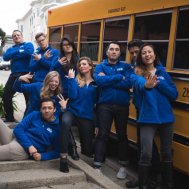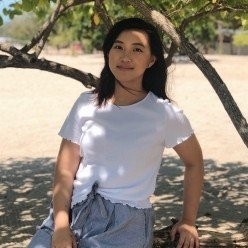The admissions process doesn’t start with a college tour, or your guidance counselor, or your SAT score. It starts with finding yourself and what you want out of it, which should eventually be the core of your personal statement.

1. Reflect on Yourself
When coming up with a personal statement, the first thing you want to ask yourself is what do you want colleges to know. What character traits define you? What are you going to accomplish in college? What’s the purpose of the story you’re telling? Obviously, you shouldn’t be directly answering these questions, but they should be the underlying foundation.
2. Look at Essay Examples
Start by brainstorming ideas and reading examples college essays. There are tons of books and websites out there (like AdmitSee!) that have compiled hundreds of successful college essays. Theses examples are supposed to get your brain juices flowing. Don’t expect them to hand you an idea on a silver platter, or just copy someone else’s story. Not only is that not allowed, but it’ll also just come across as disingenuous.
3. Find Your Voice
You don’t have to be the best writer in your class to be able to write a convincing personal statement. Admissions officers aren’t looking for the next Hemingway; they are looking for candidates who have the potential to succeed at their institution. If you’re funny, you’ll naturally going to use some light humor in your essay. Or, take a risk and put in a sassy line to show off your sarcasm.
If you’re unsure about whether your voice is genuine or not in your writing, ask a friend to read over it and see if they can imagine you saying this. Then, let someone who doesn’t know you read it. You want to make sure it’s coming across the way you intended it to. This step takes some time and effort, but don’t overlook it.
4. Format of the Personal Statement
A. The Anecdote: Narrating a specific story. i.e. the day you learned to swim, how you found out your parents were getting a divorce, the one time you met your role model
B. The Collage: Putting together many different parts of your life to cover the breadth of your life. i.e. exploring all your volunteer experiences, talking about the past, present, future
C. The Zoom-in: Going in depth on one aspect of your life. i.e. how marching band impacted you, childhood town, overcoming your fear of heights
No matter which approach you take, the most important thing to consider is how many other applicants can tell the same story, and how your essay is going to stand out among them.
Over the years, admissions officers have read it all. If you are extremely comfortable with creative writing, I’d suggest show off your writing chops. Be outside the box with the format. If you’re not as confident with your writing, don’t force it. It can easily come across as you trying too hard to be different and it’ll just fall flat.
If you are not the best writer, don’t give up just yet - there are still ways for you to stand out. Don’t be afraid to take on the common essay topics or essay formats. It’s natural that people who were adopted, for example, would want to write about that in their personal statement. It’s an important part of who they are and has likely shaped who they are. However, the experience you had as an adopted child is unique to you. No two adopted child will have the same story, because you are part of different families, upbringing and backgrounds. That’s why we always emphasize being genuine. Tell your story. Your story will set you apart.
The college admissions process tends to get people down and thinking about how bland their lives are, but in reality, we all have a little spark that sets us apart. Find the spark and let the words flow in.
Hope this helps you get started! Getting started on your Common App essay? Here are tips and examples on how to respond to the Common App Essay Prompt #1.
Want to read some essay examples? Our premium plans offer different levels of profile access and data insights that can help you with your application process. Unlock any of our packages or search our undergraduate profile database to find specific profiles that can help you make an informed choice about where to apply!
















 Back
Back